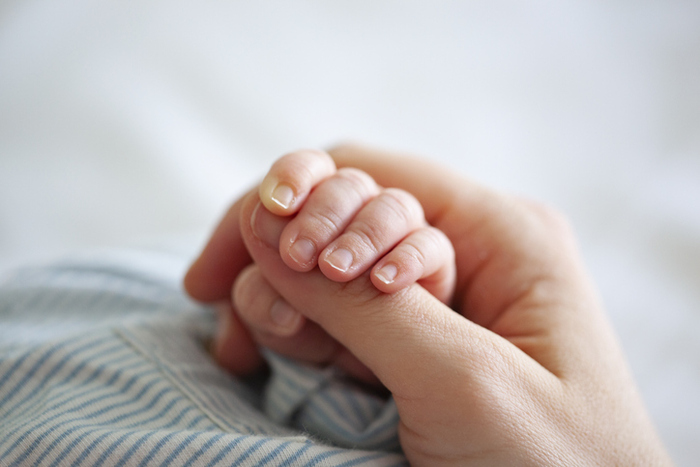In February 2014, Argentine scientists led by Gabriel Rabinovich discovered, in vitro, the role played by the Galectin-1 protein in cancer: a kind of lifeline that kept tumors afloat.
They blocked it.
The mice's tumors did, in effect, lose strength.
Just seven years later, Rabinovich and his team reconfirmed their hypotheses, now
with human tissue
.
This is scientifically exciting and clinically hopeful news.
The novelty, led by Rabinovich and researcher Diego Croci, involved the analysis of
blood samples and tumors
(in this case, melanoma) from more than 180 patients from the United Kingdom.
The horizon, that is, what follows, was described by Rabinovich himself, in dialogue with
Clarín
: "Start thinking about patients".
Because, he said: "This was the intermediate stage, what we call 'translational medicine.' We took this
intermediate step
with human tissue, which allowed us to confirm the basics discovered in the laboratory in 2014. Now we have to see it in patients."
In the absence of one, in recent weeks, Rabinovich has starred in two scientific publications linked to the topic "galectins".
The biochemist is a Conicet Senior Researcher and heads the Glycomedicine Laboratory of the Institute of Experimental Biology and Medicine (IBYME).
The scientist Gabriel Rabinovich, in the IBYME-Conicet laboratory where he studies therapies against cancer.
Photo: Julio Juarez
The first of these papers, on which these lines focus, is the one that confirmed the findings mentioned above, but, as will be seen, with an additional plus.
Three achievements against cancer
The confirmation of the role played by Galectin-1 in human tissue gave rise to three related novelties.
The first, as said, is to understand the productive role that this protein plays in tumor growth, the closest thing to a survival strategy for cancer itself, which allows it to stay afloat, just when doctors are trying to attack it.
The second novelty, linked to the first, was that the scientists deduced a logical way to stop the increase in malignant cells, precisely by attacking Gal-1, through what is known as “anti-Gal-1” treatments.
An illustrative image of a brain tumor.
Photo: Shutterstock
To do this, Rabinovich, in co-direction with Diego Croci (who had been the first author of the 2014 article), developed a monoclonal antibody (that is, a drug or medicine, not chemical but biological) that in mice made the cancer.
This
monoclonal antibody
, now developed with human biological material, is the one that they will have to test in a
future study with patients
.
Like the previous ones, the third achievement is enormous: through the samples of 189 English patients with melanoma (some of whom had died at the time their samples were analyzed in Argentina), Rabinovich and his team understood that the changes in the production of the Gal-1 protein were translated in the tumor condition itself.
Simply put, more Gal-1 means more “healthy” tumors.
Less Gal-1, better prognosis for patients
.
In short, Galectin-1 is the most difficult thing for scientists to find: an
effective biomarker
.
That is to say: Galectin-1, according to its changes and levels, "speaks" about the state of the tumor and, ultimately, about the patient, within the framework of their fight against cancer.
The air that tumors breathe
Due to its magnitude, the 2014 discovery gained international notoriety and was on the cover of the prestigious
Cell
magazine .
Now (in January), the progress of this research was published in
the Proceedings of the National Academy of Sciences of the United States of America
(PNAS).
The first authors of the paper are the scientists Nadia Bannoud, Juan Carlos Stupirski and Alejandro Cagnoni.
To understand the work in more detail, it is essential to understand an issue linked to human blood vessels.
Mammography for detection of breast cancer.
AFP photo
It is known that the formation of new vessels from existing ones, a process called angiogenesis, is essential during growth.
In fact, in those who increase their muscle mass through physical activity, a greater number of veins tends to become visible, a condition that -to make the explanation clearer- minimizes cardiovascular risk, precisely because more blood channels can be a saving escape route against possible obstructions.
Cancers take advantage of the same growth mechanism:
angiogenesis
.
The generation of new blood vessels allows them to supply themselves with nutrients and oxygen.
The role of Galectin-1 in cancer
As explained above, it is usual to try to combat cancer with anti-angiogenic therapies, in order to prevent growth and weaken the tumor.
One of the most used blocks a protein called VEGF.
The image is from 2014, when Rabinovich and his team discovered the role of the Gal-1 protein in tumor growth.
Photo Maria Eugenia Cerutti
Here come Galectina-1 and Rabinovich.
The problem is that, "even when anti-angiogenic therapy succeeds in stopping angiogenesis, Gal-1 gets in and manages to mimic the blocked protein, in this case, VEGF," explained the scientist.
Gal-1 acts as a "lifeline" or escape route for the tumor, which grows without problems and even, in the worst cases, manages to metastasize.
When Rabinovich and company realized this in 2014, one of the first goals was to develop anti-galectin-1 therapeutic proposals.
What followed, the expert remarked, was "to test all this in humans, something that was not easy at all."
Melanoma and Galectin-1
“When we finished the first paper, everyone asked us
when we were going to demonstrate it with patients
.
We always used mice.
We were obsessed with moving forward, but every time we talked to an oncologist, the patients he had were very mixed," she said.
That is, "patients who had perhaps been treated with anti-angiogenic therapies, but also with other cancer drugs that biased the possibility of testing our hypothesis," explained .
In 2022, Gabriel Rabinovich was appointed a member of the European Organization for Molecular Biology.
Photo Juano Tesone
But it finally happened: “We found a study done in 48 centers in Great Britain, of patients with melanoma.
One arm of the trial had used only anti-angiogenics.
The other was the 'control' group, ie placebo-treated patients.
It was our chance."
The plasma and tumor tissue samples arrived anonymously from England, so that the Argentine team could carry out a "double-blind" study from scratch, that is, without knowing who had received treatment and who had not.
“The most difficult thing was that first stage: measuring Galectin-1.
But we did the work and sent the information to England.
They told us that the information correlated with the data they had on the patients,” she said happily.
Thus, “those who survived worse also had more Galectin.
The protein became a biomarker: a good target for treating patients”, explained Rabinovich.
At the beginning of these lines there was talk of two papers.
The second is directly linked to everything said.
It was carried out together with Karina Mariño, also a Conicet researcher and director of the IBYME Molecular and Functional Glycomics Laboratory.
It appeared in the
Nature Reviews Drug Discovery
magazine and is a review of the status of different pharmacological developments against tumors and fibrosis, precisely through the blocking of different galectins, protagonists of cancer studies today.
PS
look too
Front-facing food labeling: an unexpected detail will be added to the black seal at the debut
The Church denounces "educational failure" in the country and calls for dialogue to reverse it












